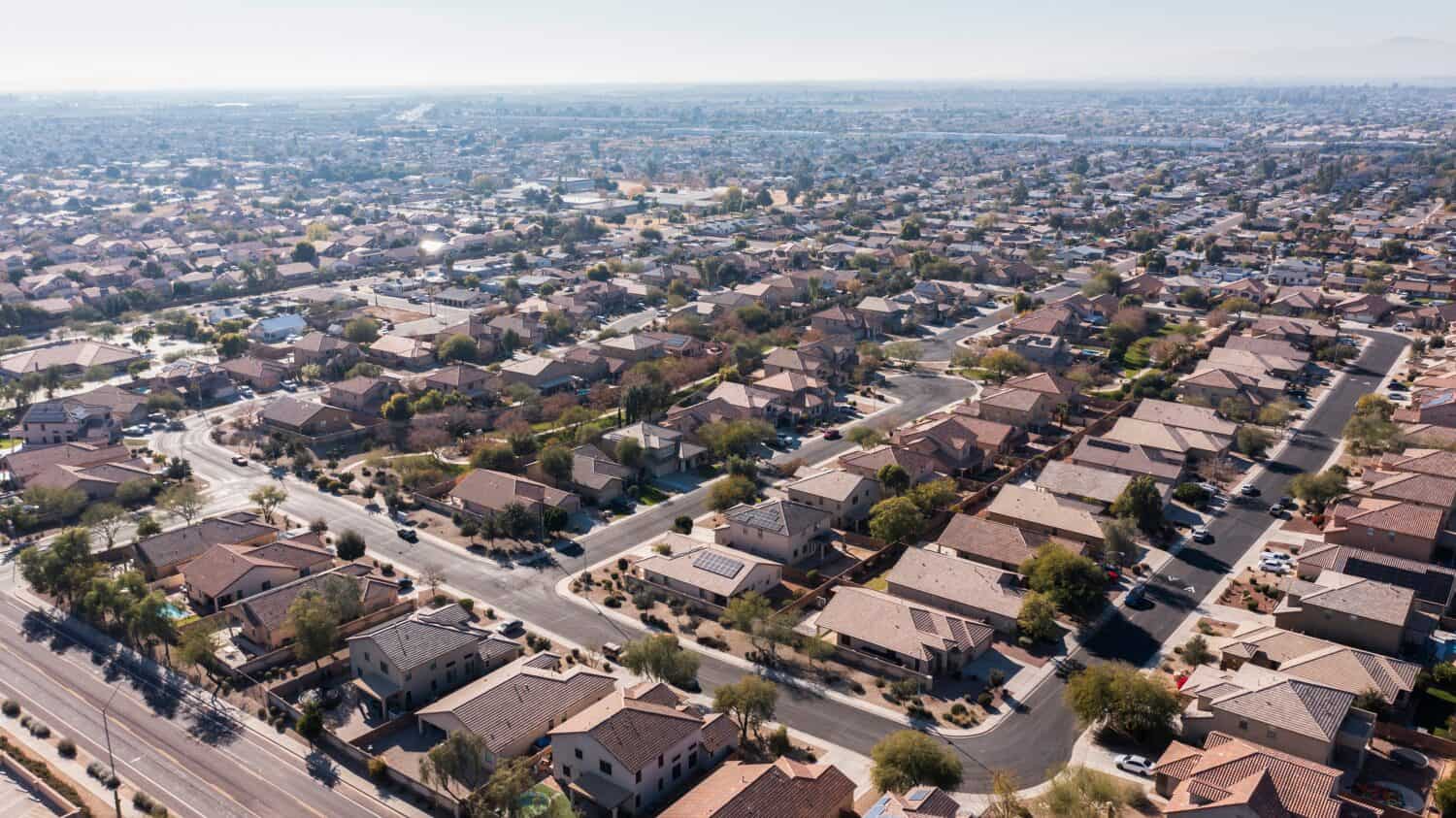
24/7 Wall St. Insights
- Since the start of the COVID-19 pandemic, supply and demand dynamics have sent home prices surging by nearly 38%.
- Coupled with historically high mortgage rates, rising home prices have made homeownership prohibitively expensive for large segments of the population.
- Still, when accounting for income, some cities in Arizona are far more affordable for prospective home buyers than others.
- Also: Discover the next Nvidia
The United States is in the midst of a housing affordability crisis. While inflation has dropped to 2.5% from a multi-decade high of 9.1% in June 2022 — the Consumer Price Index for housing remains stubbornly high, at 5.4% as recently as August 2024. Now, in much of the country, home prices are well above what many Americans can afford.
The median list price for a single-family home in the U.S. was $437,450 in July 2024 — up about $118,500 from the start of the pandemic, according to data from Realtor.com. On top of rising prices, most homebuyers are further burdened by historically high borrowing costs. The average interest rate on a 30-year fixed mortgage exceeded 6% in September 2022 for the first time in nearly a decade and a half — and it has remained above that threshold for the last two years. (Here is a look at the 23 cities where most homes are selling for less than $125,000).
Even though the cost of homeownership has soared, the question of affordability also depends on earnings and wealth. Multiple recent studies have found that it would take an income of over $100,000 a year to comfortably afford a typical home in the United States — and most American workers are earning far less than that. As of May 2023, the median annual wage across all occupations in the U.S. was just $48,060, according to the Bureau of Labor Statistics.
Based on these numbers, the typical American home now costs about 9.1 times more than a typical worker’s annual earnings. Still, because both incomes and home prices vary across the country, housing affordability does too. In Arizona, for example, housing is generally less affordable than it is nationwide. The typical home in Arizona is listed for $499,998, about 10.5 times more than the state’s median annual wage of $47,680.
Even within Arizona, housing affordability varies considerably by market. Of the seven metropolitan areas in the state with available data from both Realtor.com and the BLS, median home prices are anywhere from about 7.0 to 17.2 times higher than the median annual wage. (These are 10 things to consider before buying a home for retirement.)
Accounting for both incomes and home prices, these are the most (and least) affordable housing markets in Arizona, ranked. Supplemental data on median home size and year-over-year price changes are also from Realtor.com.
Why It Matters
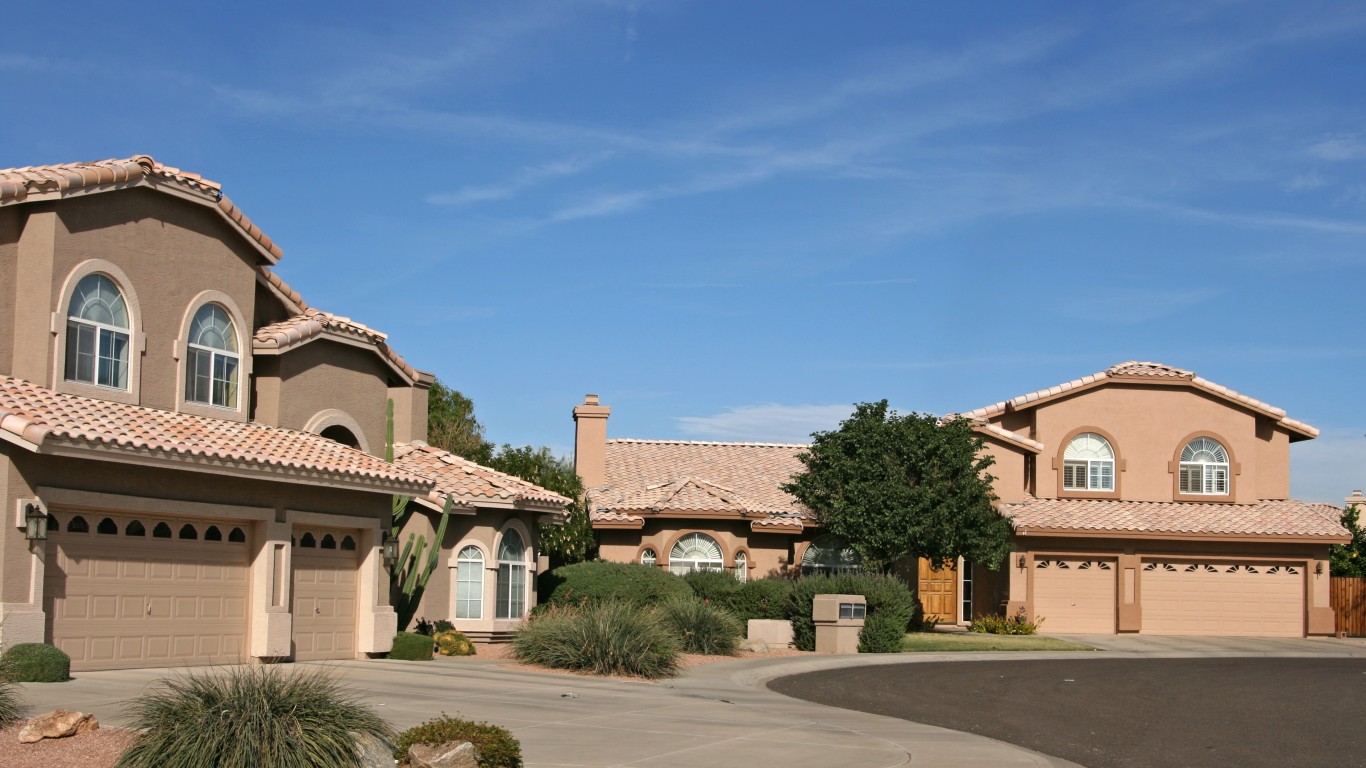
Fueled by supply shortages and rising demand, home prices have surged since the start of the pandemic. More recently, the financial burden of higher home prices has been exacerbated by historically high mortgage rates, pricing millions of Americans out of the market. Still, housing affordability is contingent upon income, and some major markets in Arizona are far more affordable for prospective buyers than others.
7. Sierra Vista-Douglas, AZ
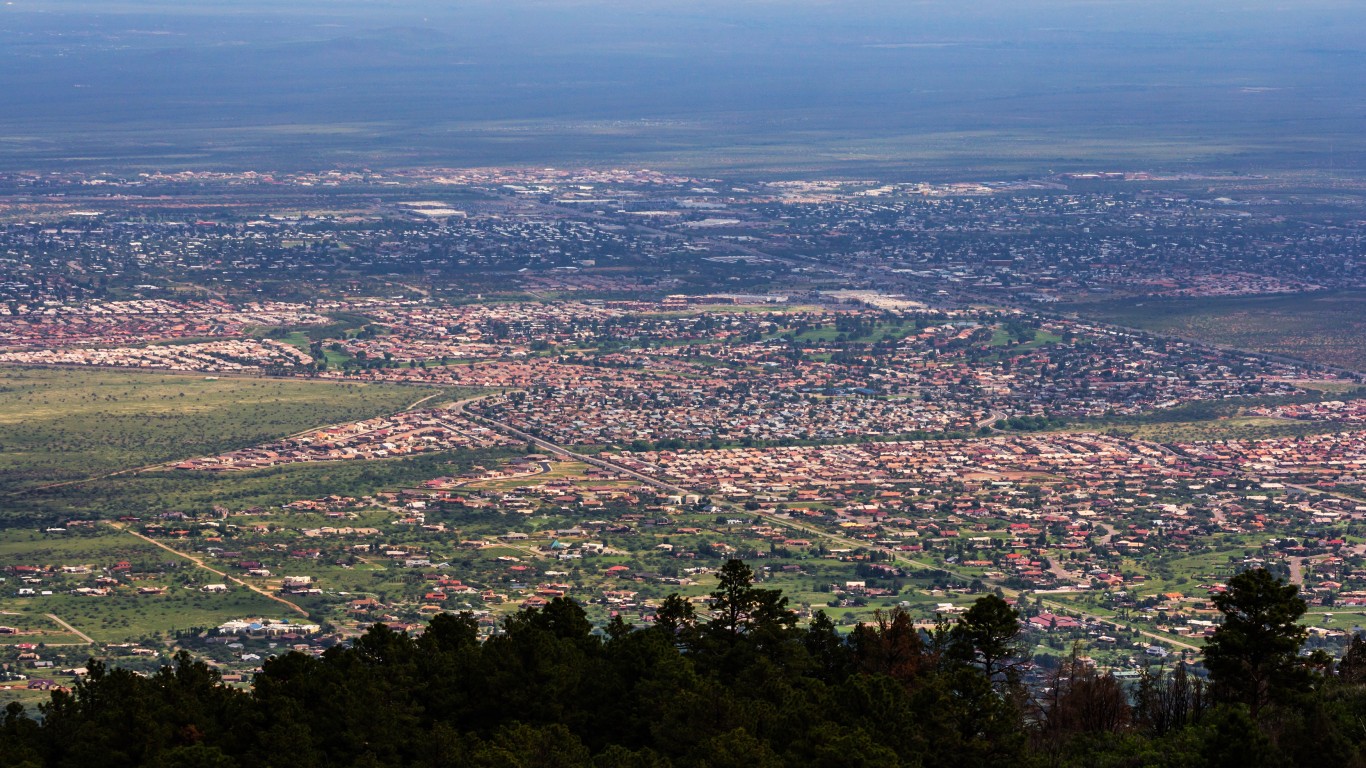
- Income to home price ratio: 7.0 to 1
- Median home list price in July 2024: $317,125 (36.6% lower than median home price in Arizona)
- Median annual wage across all occupations: $45,150 (5.3% lower than median wage in Arizona)
- Median size of a listed home in July 2024: 1,812 square feet (6.5% smaller than a typical home in Arizona)
- 1-year change in median home list price: -2.4%
6. Yuma, AZ

- Income to home price ratio: 8.6 to 1
- Median home list price in July 2024: $349,675 (30.1% lower than median home price in Arizona)
- Median annual wage across all occupations: $40,660 (14.7% lower than median wage in Arizona)
- Median size of a listed home in July 2024: 1,588 square feet (18.0% smaller than a typical home in Arizona)
- 1-year change in median home list price: +3.0%
5. Tucson, AZ
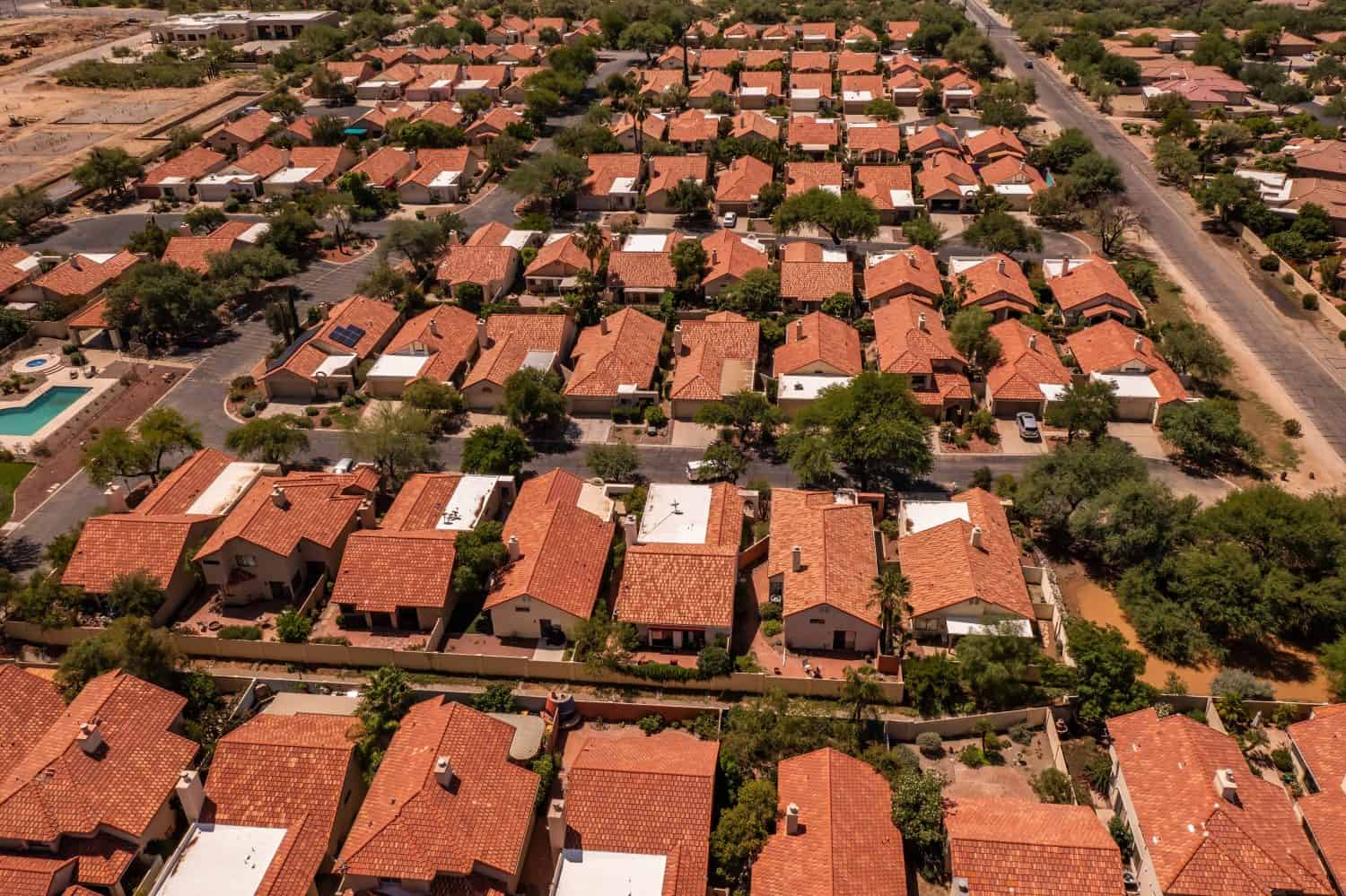
- Income to home price ratio: 8.8 to 1
- Median home list price in July 2024: $395,000 (21.0% lower than median home price in Arizona)
- Median annual wage across all occupations: $44,990 (5.6% lower than median wage in Arizona)
- Median size of a listed home in July 2024: 1,816 square feet (6.2% smaller than a typical home in Arizona)
- 1-year change in median home list price: -3.7%
4. Lake Havasu City-Kingman, AZ

- Income to home price ratio: 10.5 to 1
- Median home list price in July 2024: $415,000 (17.0% lower than median home price in Arizona)
- Median annual wage across all occupations: $39,580 (17.0% lower than median wage in Arizona)
- Median size of a listed home in July 2024: 1,643 square feet (15.2% smaller than a typical home in Arizona)
- 1-year change in median home list price: -1.2%
3. Phoenix-Mesa-Scottsdale, AZ

- Income to home price ratio: 10.9 to 1
- Median home list price in July 2024: $528,450 (5.7% higher than median home price in Arizona)
- Median annual wage across all occupations: $48,600 (1.9% higher than median wage in Arizona)
- Median size of a listed home in July 2024: 2,015 square feet (4.0% larger than a typical home in Arizona)
- 1-year change in median home list price: -2.1%
2. Prescott, AZ
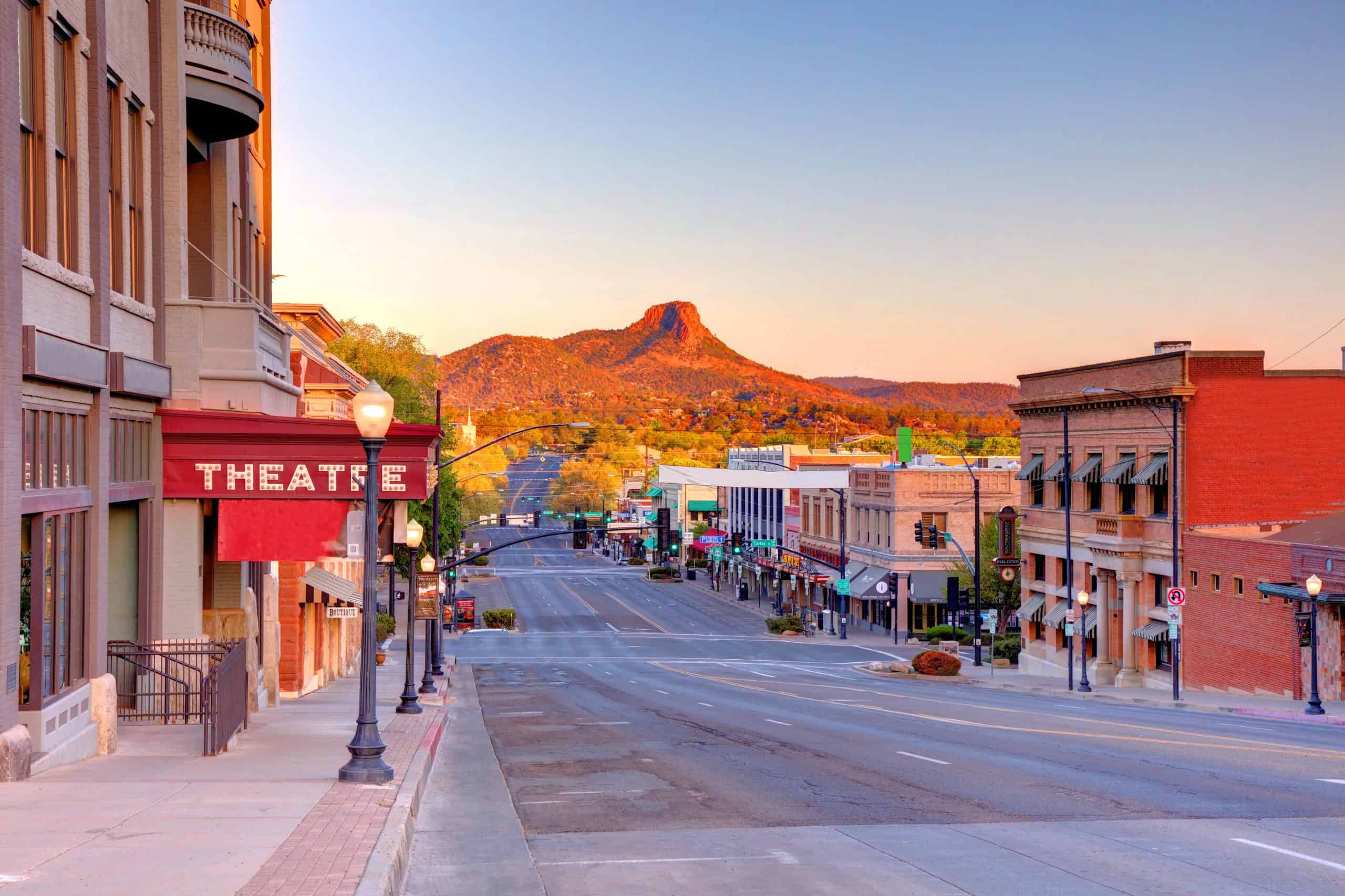
- Income to home price ratio: 15.5 to 1
- Median home list price in July 2024: $680,250 (36.1% higher than median home price in Arizona)
- Median annual wage across all occupations: $43,900 (7.9% lower than median wage in Arizona)
- Median size of a listed home in July 2024: 2,090 square feet (7.9% larger than a typical home in Arizona)
- 1-year change in median home list price: +4.7%
1. Flagstaff, AZ
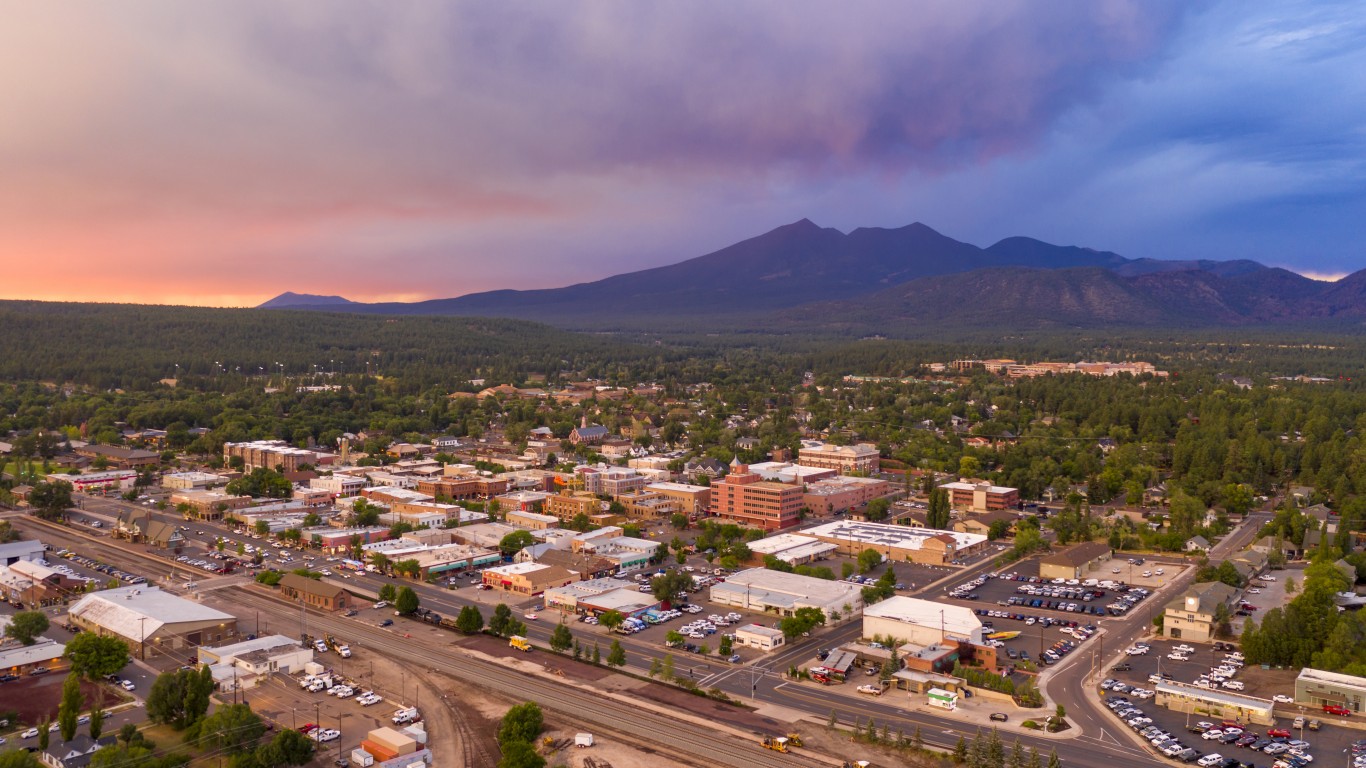
- Income to home price ratio: 17.2 to 1
- Median home list price in July 2024: $750,750 (50.2% higher than median home price in Arizona)
- Median annual wage across all occupations: $43,540 (8.7% lower than median wage in Arizona)
- Median size of a listed home in July 2024: 2,067 square feet (6.7% larger than a typical home in Arizona)
- 1-year change in median home list price: +2.3%
The Average American Has No Idea How Much Money You Can Make Today (Sponsor)
The last few years made people forget how much banks and CD’s can pay. Meanwhile, interest rates have spiked and many can afford to pay you much more, but most are keeping yields low and hoping you won’t notice.
But there is good news. To win qualified customers, some accounts are paying almost 10x the national average! That’s an incredible way to keep your money safe and earn more at the same time. Our top pick for high yield savings accounts includes other benefits as well. You can earn up to 3.80% with a Checking & Savings Account today Sign up and get up to $300 with direct deposit. No account fees. FDIC Insured.
Click here to see how much more you could be earning on your savings today. It takes just a few minutes to open an account to make your money work for you.
Our top pick for high yield savings accounts includes other benefits as well. You can earn up to 4.00% with a Checking & Savings Account from Sofi. Sign up and get up to $300 with direct deposit. No account fees. FDIC Insured.
Thank you for reading! Have some feedback for us?
Contact the 24/7 Wall St. editorial team.


